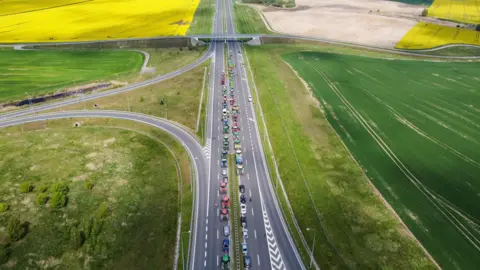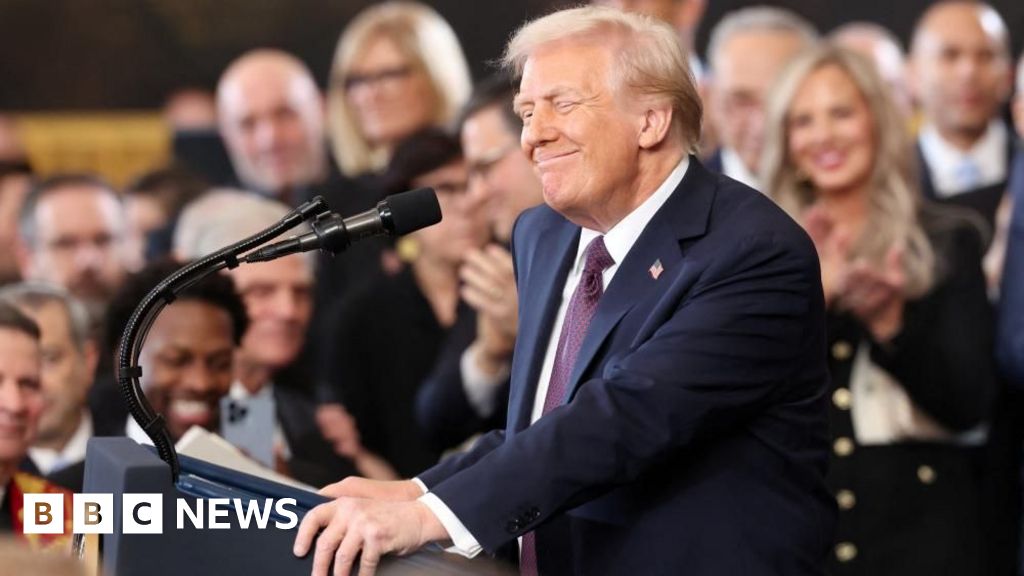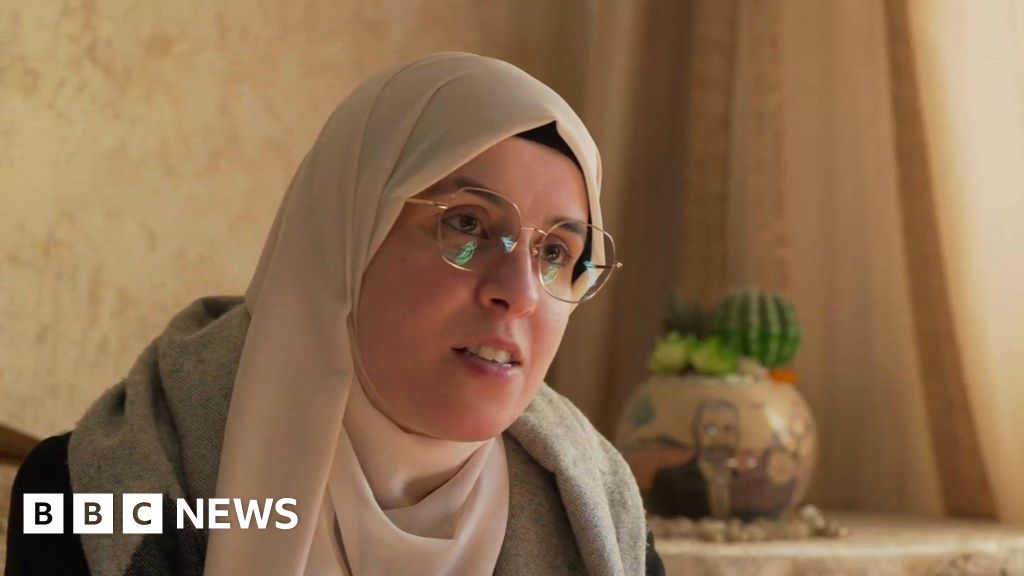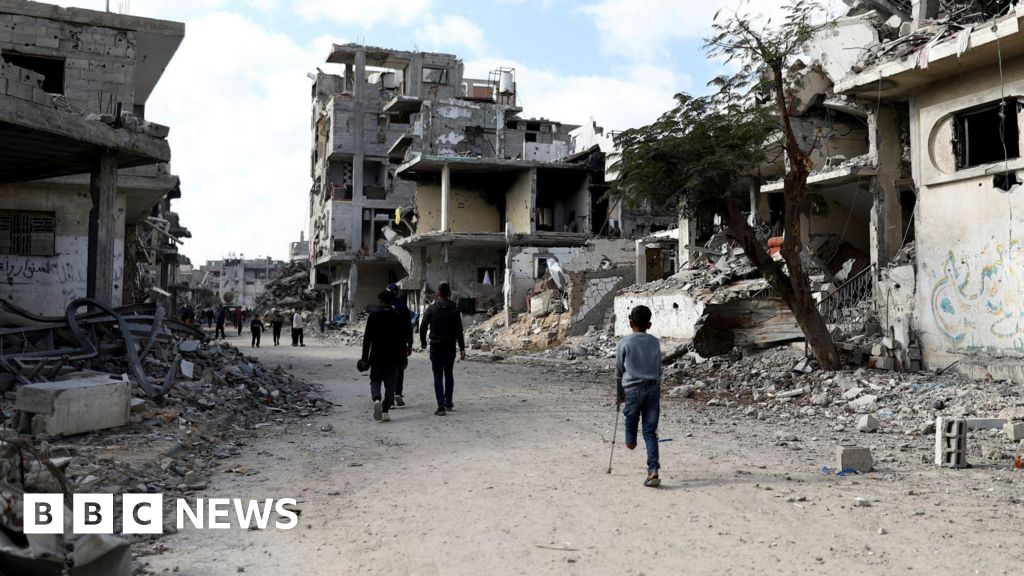ARTICLE AD BOX

 EPA
EPA
A demonstrator at a Climate Strike rally in Berlin last month
It is being called a “greenlash”.
Resistance to green policies has broken out across Europe. It was all so different in the last European elections five years ago, when young voters especially demanded action against climate change.
Soaring energy prices because of Russia’s war in Ukraine and the wider cost of living crisis have turned many Europeans against abandoning fossil fuels. And farmers across Europe have blocked roads in anger at environmental reforms.
It could spell trouble for the EU's Green parties at the polls from 6-9 June.
The parties that make up the Greens/European Free Alliance (G/EFA) are currently the fourth-biggest group in the European Parliament, but most polls suggest they could lose as much as 30% of their seats.
“If the two right-wing groupings end up ahead of us and become part of the process of forming a majority, they will block large parts of parliament,” warns the Greens’ lead candidate Terry Reintke.
That kind of result could have a major impact on how the EU implements some of its Green Deal for the European economy, which is part of the Climate Law that aims to make Europe carbon-neutral by 2050.
Part of the deal has already been passed in a package of measures to reduce net greenhouse gas emissions by 55% of 1990 levels by 2030. The laws include a controversial clause that bans the sale of petrol and diesel cars in the EU by 2035.
But most of the policies that decide how the EU achieves its goals for 2040 still have to be agreed in the coming years. Additionally, if there’s enough political pressure, even directives that have already been approved can be changed.
And parties on the right and far right across the continent have responded fast to public discontent, weighing up expensive decarbonisation processes and investments in green transition against the cost of living crisis.
In Italy, far-right League leader Matteo Salvini has long complained that the 2035 ban on diesel and petrol car sales is both anti-European and a "gift" to the Chinese electric car industry - and he has made it a key part of his agenda.
Hungary’s Viktor Orban may have no problem with China providing billions of euros of green investment in his own country, but he has been quick to back farmers protesting in Brussels and to accuse other European leaders of not taking ordinary people seriously.
Germany's coalition government nearly fell apart because of a backlash over its plans to ban new oil and gas heating systems from 2024. The policy was watered down as voters reacted angrily to the idea of having to ditch their boilers. The far-right AfD complained of an “eco-dictatorship” and is challenging for second place in the polls.
In the Netherlands, government plans to reduce nitrogen oxide emissions outraged farmers and led to a surge in support for the Farmer-Citizens Movement (BBB), who are now set to be part of the new government. The coalition, which includes Anti-Islam populist Geert Wilders’ Freedom Party, plans to row back on a number of green policies, including subsidies for electric cars and solar panels.
Sweden was long seen as spearheading Europe’s fight against climate change. But the government, which relies on the support of the far-right Sweden Democrats, was criticised by the Swedish climate policy council for losing pace and putting through policies that meant emissions would rise.
In Spain, one of the countries in Europe most affected by the effects of climate change, the far-right Vox party denies climate change is man-made and wants to roll back most recent green policies.
Hannah Neumann, a German MEP from the Alliance 90/The Greens, says the narrative that has emerged from the radical right - that the choice is to “either protect the climate or be competitive with our economy” - is plain wrong.
“It is not ‘either/or’ it is clearly an ‘and’,” she told the BBC.
“Everyone is moving toward net zero, not just us,” with both the US and China heavily investing in preparing their economies for green transition, she says. If the EU slows down, Ms Neumann fears it will fall behind and no longer be competitive.
However, centre-right parties also take issue with the speed and cost of green transition.

 EPA
EPA
Polish farmers with their tractors take part in a protest in May
The biggest grouping in the European Parliament, the conservative European People's Party’s (EPP) has long been unhappy with the EU’s ban on petrol and diesel cars from 2035. It is a controversial part of the EU’s Green Deal, and not just with parties on the right.
Farmers’ protests have also led to Green Deal policies being reversed. Earlier this year European Commission President Ursula von der Leyen announced plans to scrap a proposal halving pesticide use across the EU.
Europe’s centre-right parties understand the urgency and importance of climate issues just as the Greens do, says Jessica Polfjärd, an MEP from Sweden's Moderate Party. But she says doing so responsibly and realistically are key, as is finding the right balance.
“Green policies from green parties didn’t work in reality. They wanted higher targets, they were too ambitious,” she told the BBC.
They had not given industry the right tools for the transition, she argues: industries need the chance to catch up and the impact of measures has to be assessed first.
Despite the backlash, climate change remains at the forefront of European voters' minds.
In last month's EU Eurobarometer survey on European attitudes on the environment, 78% of respondents said environmental issues had a direct effect on their daily life and 84% agreed EU environmental legislation was necessary for protecting the environment in their country.
However, a smaller majority of 58% wanted the use of renewable energy sources and moving to a greener economy speeded up, according to another recent Eurobarometer survey.
But cost of living issues have played a far bigger part in campaigning ahead of this week’s vote - and it looks likely that over the coming days the European Greens will lose much of the ground they gained five years ago.

 7 months ago
19
7 months ago
19








 English (US) ·
English (US) ·